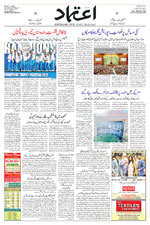People who check smartphone constantly may be impatient: study
Fri 18 Mar 2016, 13:12:49

People who constantly check their smartphone throughout the day may be more impatient and impulsive, says a new study which found the inability to control impulses is behind excessive use of mobile devices.
The findings shed light on the reasons why some people are so attached to their smartphones and mobile technology, while others are less so.
Researchers from the Temple University in the US set out to determine if people who report heavier mobile technology use might also have different tendencies towards delaying gratification than others, or might exhibit individual differences in impulse control and in responding to rewards.
For the study, 91 undergraduate students completed a battery of questionnaires and cognitive tests. They indicated how much time they spent using their phones for social media purposes, to post public status updates, and to simply check their devices.
Each student's tendency to delay gratification in favour of larger, later rewards (their so-called intertemporal preference) was also assessed. They were given
hypothetical choices between a smaller sum of money offered immediately or a larger sum to be received at a later time.
hypothetical choices between a smaller sum of money offered immediately or a larger sum to be received at a later time.
Participants also completed tasks that assessed their ability to control their impulses. Finally, participants' tendencies to pursue rewarding stimuli were also assessed.
The results provide evidence that people who constantly check and use their mobile devices throughout the day are less apt to delay gratification, researchers said.
"Mobile technology habits, such as frequent checking, seem to be driven most strongly by uncontrolled impulses and not by the desire to pursue rewards," said Henry Wilmer from Temple University.
"The findings provide important insights regarding the individual difference factors that relate to technology engagement. These findings are consistent with the common perception that frequent smartphone use goes hand in hand with impatience and impulsivity," said Jason Chein from Temple University.
The findings were published in the journal Psychonomic Bulletin and Review.
No Comments For This Post, Be first to write a Comment.
Most viewed from Specials
Most viewed from World
AIMIM News
Delhi Assembly polls: Owaisi leads Padyatra in Okhla
Feb 01, 2025
We reject this Waqf Amendment Bill: Asaduddin Owaisi
Jan 30, 2025
Latest Urdu News
Most Viewed
May 26, 2020
Which team will win the ICC Men's Champions Trophy 2025 held in Pakistan/Dubai?
Latest Videos View All
Like Us
Home
About Us
Advertise With Us
All Polls
Epaper Archives
Privacy Policy
Contact Us
Download Etemaad App
© 2025 Etemaad Daily News, All Rights Reserved.










































